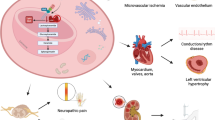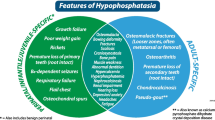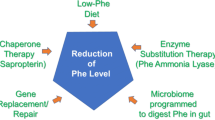Abstract
Iron deficiency is usually attributed to chronic blood loss or inadequate dietary intake. Here, we show that iron deficiency anemia refractory to oral iron therapy can be caused by germline mutations in TMPRSS6, which encodes a type II transmembrane serine protease produced by the liver that regulates the expression of the systemic iron regulatory hormone hepcidin. These findings demonstrate that TMPRSS6 is essential for normal systemic iron homeostasis in humans.

Similar content being viewed by others
References
Andrews, N.C. Yale J. Biol. Med. 70, 219–226 (1997).
Brown, A.C. et al. Am. J. Hematol. 27, 1–6 (1988).
Buchanan, G.R. & Sheehan, R.G. J. Pediatr. 98, 723–728 (1981).
Hartman, K.R. & Barker, J.A. Am. J. Hematol. 51, 269–275 (1996).
Mayo, M.M. & Samuel, S.M. Clin. Lab. Sci. 14, 135–138 (2001).
Pearson, H.A. & Lukens, J.N. J. Pediatr. Hematol. Oncol. 21, 412–417 (1999).
Velasco, G., Cal, S., Quesada, V., Sanchez, L.M. & Lopez-Otin, C. J. Biol. Chem. 277, 37637–37646 (2002).
Nemeth, E. & Ganz, T. Annu. Rev. Nutr. 26, 323–342 (2006).
Kemna, E.H., Tjalsma, H., Podust, V.N. & Swinkels, D.W. Clin. Chem. 53, 620–628 (2007).
Acknowledgements
We thank the families for their invaluable contribution to this study. We are indebted to E. Neufeld for ongoing mentorship. We thank C. Trenor, A. Donovan, I. Rubio-Aliaga and other members of the Andrews laboratory for their contributions to the early stages of this project. We thank A.J. Iafrate and J. Miller for technical advice and assistance. K.E.F. was supported by T32 CA009216 awarded to the Department of Pathology, Massachusetts General Hospital. This work was also supported by R01 DK080011 (M.D.F.), K12 HL087164 (M.M.H.), R01 DK066373 (N.C.A.) and DK053813 (N.C.A.).
Author information
Authors and Affiliations
Contributions
K.E.F. obtained institutional review board approval and consents, designed, conducted and interpreted results from the segregation studies and sequence analysis, and prepared the manuscript. M.M.H. obtained institutional review board approval and consents and coordinated clinical sample acquisition and clinical data analysis. D.R.C. conducted and interpreted results from the sequencing analysis and assisted with the segregation studies and other technical aspects of the project. Y.A., H.A.P., K.R.H., M.M.M. S.M.S. and J.J.S. were clinical collaborators who provided samples from affected individuals, phenotypic information and results of laboratory testing. K.M. interpreted results from the segregation studies and sequencing analysis. N.C.A. and M.D.F. obtained institutional review board approval and consents, supervised the design of experiments and data interpretation, and prepared the manuscript. N.C.A. also provided samples from affected individuals, phenotypic information and results of laboratory testing.
Note: Supplementary information is available on the Nature Genetics website.
Corresponding authors
Supplementary information
Supplementary Text and Figures
Supplementary Note, Supplementary Methods, Supplementary Tables 1 and 2, Supplementary Figures 1–3 (PDF 1142 kb)
Rights and permissions
About this article
Cite this article
Finberg, K., Heeney, M., Campagna, D. et al. Mutations in TMPRSS6 cause iron-refractory iron deficiency anemia (IRIDA). Nat Genet 40, 569–571 (2008). https://doi.org/10.1038/ng.130
Received:
Accepted:
Published:
Issue Date:
DOI: https://doi.org/10.1038/ng.130
- Springer Nature America, Inc.
This article is cited by
-
Circulating microRNAs and hepcidin as predictors of iron homeostasis and anemia among school children: a biochemical and cross-sectional survey analysis
European Journal of Medical Research (2023)
-
TMPRSS6 as a Therapeutic Target for Disorders of Erythropoiesis and Iron Homeostasis
Advances in Therapy (2023)
-
TMPRSS6 gene polymorphisms associated with iron deficiency anaemia among global population
Egyptian Journal of Medical Human Genetics (2022)
-
Hepcidin: looking back at two decades of progress
Nature Cardiovascular Research (2022)
-
The mutual crosstalk between iron and erythropoiesis
International Journal of Hematology (2022)





